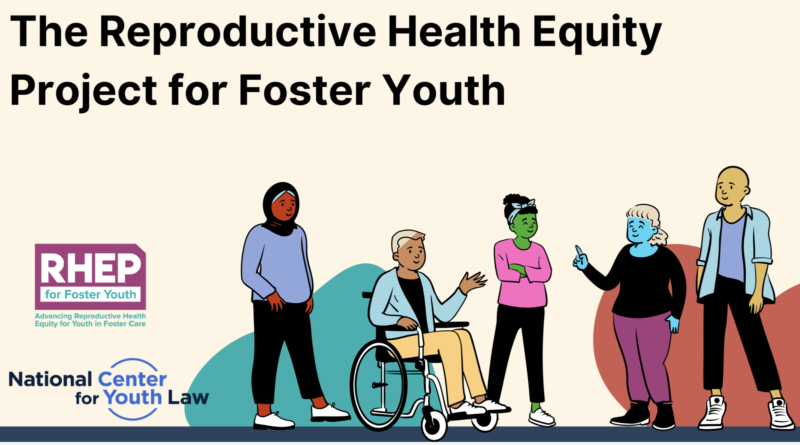Webinar: Engaging with Pregnant and Parenting Foster Youth
There are about 56,000 youth in foster care in California, and a third of them live in Los Angeles County. This population faces disparities in sexual and reproductive health, such as higher rates in STIs, youth pregnancy, and pregnancy/infant loss.
On September 7, LA Best Babies Network hosted a webinar for Outreach Specialists in the Welcome Baby program, along with other staff in our network of home visiting organizations and Welcome Baby hospitals. In the webinar, leaders of the Reproductive Health Equity Project for Foster Youth (RHEP) talked about how to effectively engage and communicate with expectant and parenting youth who have had experience in the foster care system.
The presenters, some of whom have lived expertise in this area, said this population may be more reluctant to accept support services like home visiting, and may even fear that such services could expose them to the risk of having their own kids taken away. This is why it is so important for Outreach Specialists (and home visitors … everyone, really!) to have a trauma-informed approach, and to make sure their interactions are respectful, inclusive, and empathetic on every level.
The RHEP presenters pointed out that youth of color and LGBTQ+ youth are disproportionately represented in foster care systems. In California, children who identify as Black are almost three times more likely to be in foster care than white children. Research also suggests that about 30 percent of youth in foster care identify as LGBTQ+. These populations face significant barriers to health and reproductive care, and may be hesitant to accept care due to concerns about discrimination from health care providers.
Another important point: Expecting and parenting foster youth often lack access and knowledge of the resources and services available to help them throughout their pregnancy and parenthood. As Outreach Specialists know, it’s important to convey that a goal of home visiting programs is to help participants find free community resources.
The RHEP Youth Advisory Board made this tip sheet on how to engage with youth in the foster care system. Some key takeaways:
- We are more than the sum of our negative experiences
- Avoid condescending and negative tone and comments
- Have empathy
- Use positive and active nonverbal communication
- Our experiences are our own, no matter your degree or position
What about the term “home visiting”? If you’re not familiar with these programs, it has a pretty big “ick factor,” said a Youth Advisory Board member. When she was pregnant at 15, she declined these free services because the prospect of having a stranger come in her home and judge her as a parent was just too scary. Best to emphasize the nonjudgmental approach of these programs — and that they can meet clients wherever they like (in a park, at a fast-food restaurant … whatever is comfortable and convenient). And maybe call it “parent/family support” instead.
Based in Los Angeles, the Reproductive Health Equity Project for Foster Youth is administered by the National Center for Youth Law and is made up of a network of diverse partner agencies and a Youth Advisory Board. The project’s goal is to promote the bodily autonomy and healthy sexual development of foster youth. The Youth Advisory Board consists of about a dozen members who are currently or were formerly in the foster care system. They work as consultants and advise and lead projects for the organization. Some of the terrific resources they have created include: Teen Talk: Foster Youth (a free online sex-ed curriculum); Fostering Parenthood: The Podcast; Self-Taught: The Podcast; the Youth Blog; and California Foster Youth Tax Project (free tax filing services for current and former foster youth).
The webinar was not recorded, but the presenters shared a variety of helpful resources:
- Webinar presentation slides
- Top tips for youth engagement in the foster care system (RHEP Youth Advisory Board)
- Finding LGBTQ+ Inclusive Medical Care (RHEP Youth Advisory Board)
- Free Virtual Sex-ed for Youth in Foster Care (RHEP)
- The Foster Friendly Healthcare Toolkit (RHEP)
- Resources for Expectant and Parenting Youth in Foster Care in California (John Burton Advocates for Youth)
- “Train-the Trainers” to Boost Utilization of the Foster Youth Tax Credit (John Burton Advocates for Youth)

